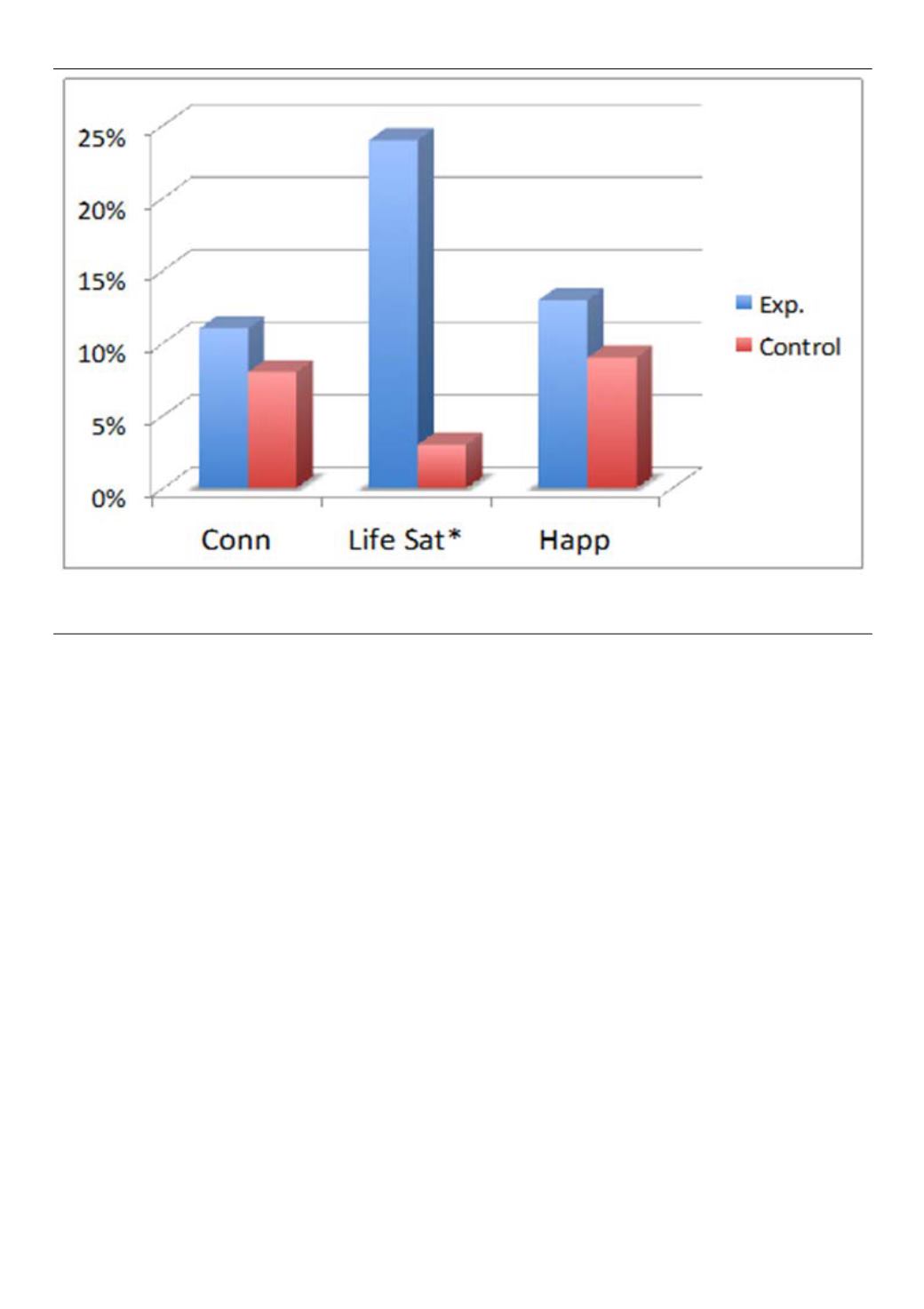
Figure 4.
Percent increase in connectedness, life satisfaction, and happiness
Further analyses found that the reduction in anxiety and depression associated with the MSC
program were explained by increases in self-compassion, but not mindfulness. Increased
mindfulness and self-compassion both predicted decreased stress and increased life satisfaction,
while increased mindfulness, but not self-compassion, predicted decreased emotional avoidance.
These results underscore the fact that mindfulness and compassion are both important means of
enhancing mental health, and that each construct has unique yet overlapping impacts on
psychological functioning. The degree to which participants’ self-compassion levels increased was
significantly linked to their degree of self-compassion practice, both in terms of formal meditation
and informal practice in daily life. Gains in all study outcomes were maintained at six-month and
one-year follow-up. In fact, life satisfaction actually increased from just after the MSC program
ended to the one-year follow-up, suggesting that the continued practice of self-compassion can
continue to enhance one’s quality of life over time.
Given that research on MSC is brand new, future research directions for the MSC program are
numerous. For instance, it might be helpful to teach the MSC course to targeted populations such
as adolescents, college students, clinicians, healthcare professionals, parents, spouses, etc., to
help them to deal with the challenges of life with greater ease. By wrapping emotional pain in the
warm embrace of self-compassion, suffering is ameliorated and well-being is enhanced, allowing
for a healthier and more balanced way of being.
308


